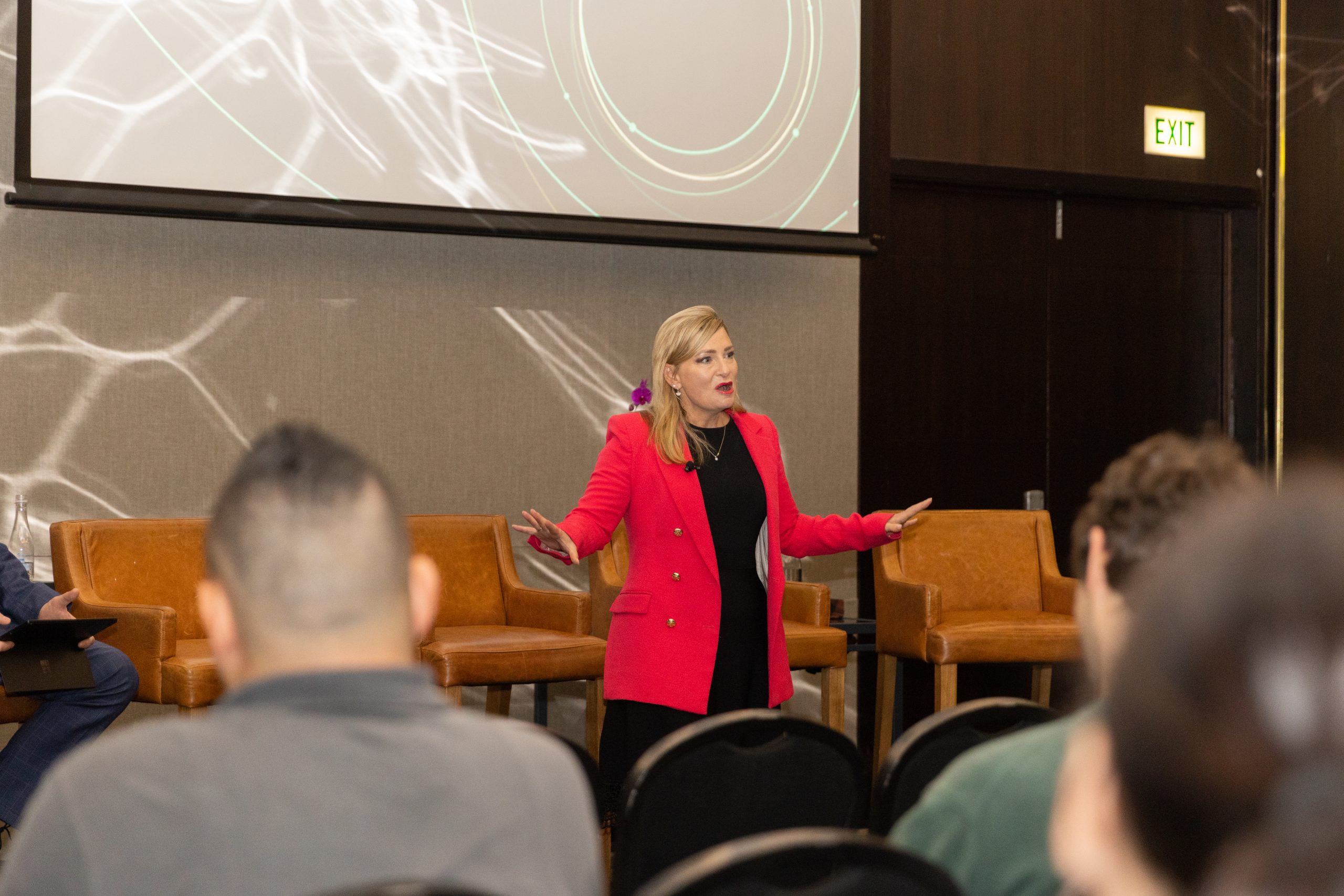If there was a general theme that came to the fore at the recent TechWeek panel event in Wellington, it was the huge potential represented by cloud computing, and the importance of having the right skillsets, to be able to bring agencies together quickly to support a co-ordinated response in times of crisis. And of course, skilling to protect data as well as communities.
Host Microsoft was joined by panellists Ruth Russell, Chief Information Officer at Te Tumu Paeroa, Office of the Māori Trustee, and Aaron Toatelegese, CTO at MBIE, for the Enhancing Hyperscale Cloud breakfast event. The purpose was to discuss the opportunities for the public sector to modernise their operations and deliver new, more accessible services across the motu as a result of the coming hyperscale datacentres.
With their observations on the response to recent weather events like Cyclone Gabrielle, or even Covid before that, Ruth and Aaron revealed how much cloud is already benefiting communities, provided the right partners are involved.
Ruth talked about how cloud and other digital technologies enabled agencies to share satellite imagery from flood-hit whenua that couldn’t be accessed after Cyclone Gabrielle. This provided key information to enable whenua owners to access the right funding and resources.
In his previous role, Aaron was deeply involved with the MIQ system and frank about the need to choose the right cloud partner to succeed, with their approach to skilling workers and change management just as important as the technology itself.
“MIQ was only able to respond as quickly as we did through the use of cloud services,” he said frankly. “Even then, we needed to challenge our own internal business processes to deliver the outcomes quickly. It came down to three things: number one – pick a solution for the tech platform. Two – skills and engagement, choosing who to partner with to achieve that. Three – culture and behaviours.”
Steps two and three are often overlooked, but they were crucial to standing up the system and getting MIQ workers up to speed quickly, while also achieving essential buy-in for what was an untried and untested way of working.
But while Ruth was excited about enabling more emergency response capabilities like this, she also came back to the importance of skilling agencies and communities to prepare for the digital era.
“There’s a massive opportunity in diversifying IT skilling and capability to benefit whanau – and that’s to look at how we change to help a more diverse set of people, particularly women, Māori and Pasifika, feel safe and welcome in the IT industry. We need to look at what changes we as an industry can make to help build that capability,” she said.
Skilling was also seen as vital to protecting government and citizen data, which Ruth said “carries the Mana (identity), the Tapu (sacredness) and the Mauri (essence) of people and whenua”, and should be treated like a taonga (treasure).
That means organisations need to be thinking about what they’ll need in 10 years to provide for new skillsets.
As Microsoft Azure and Security Business Group Lead Evan Williams pointed out: “You could have the best end-to-end cybersecurity, but to utilise it, you need the people processes to handle it in a secure manner. Sophistication and speed of cyberattacks is on the rise – we need to make sure we have the skills in place to get ahead of it.”
Microsoft New Zealand Managing Director Vanessa Sorenson revealed that Microsoft’s own people had meeting-free Fridays to give them time to absorb all the latest developments and updates, so they were in a position to support their partners to implement any changes. She encouraged every organisation to consider a similar approach, and to look at providing pathways to skilling. For example, Te Whatu Ora is offering internships as part of Te Pūkenga’s new cybersecurity course, co-developed with TupuToa and Microsoft.
“The more people with digital skills we have, the more we all benefit, so we encourage every organisation to think about how they’re preparing for hyperscale cloud, and preparing their workforces too,” she said. ”We’re very conscious around access and the digital divides being created. We can’t be a digital nation if we’re leaving some behind.”

